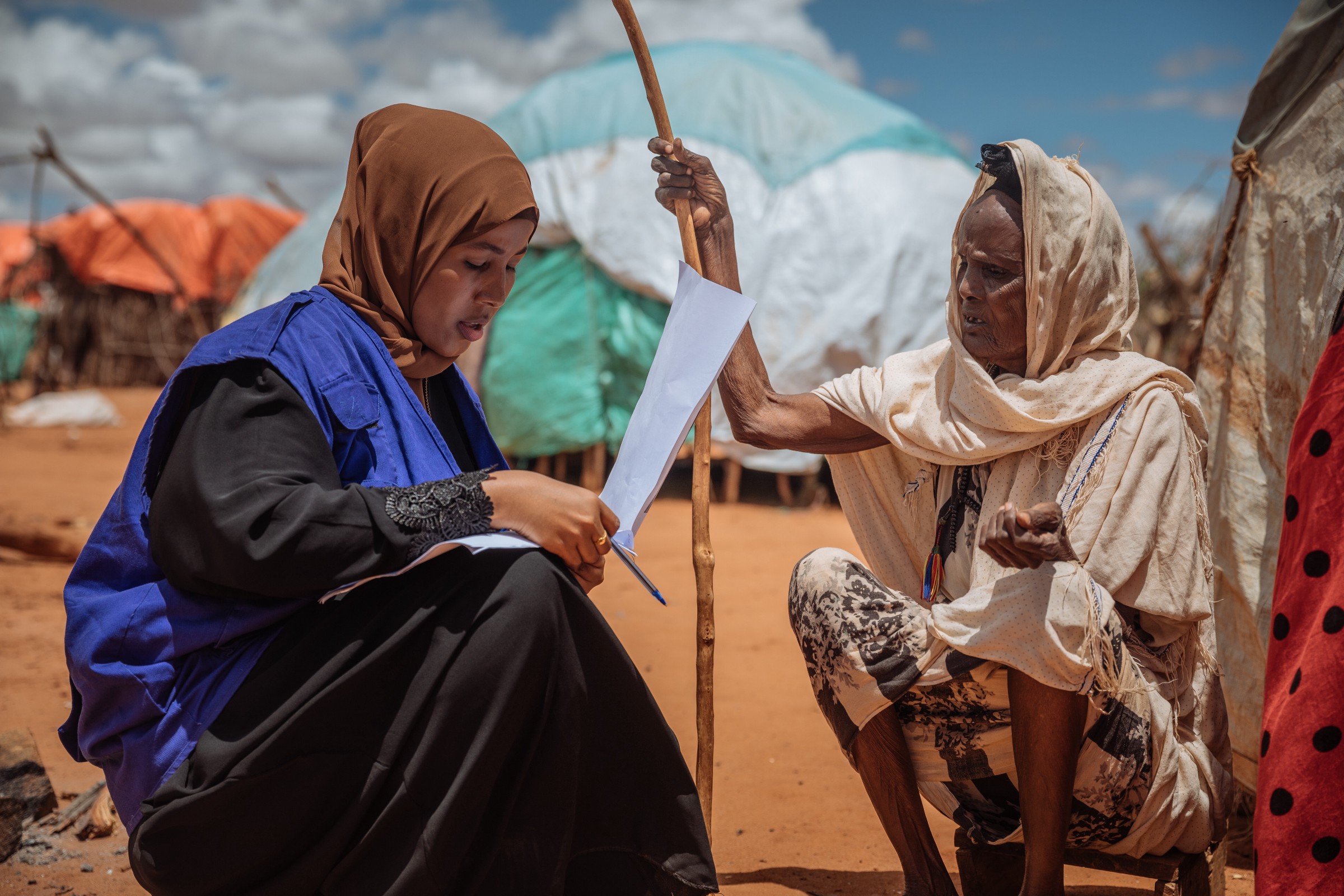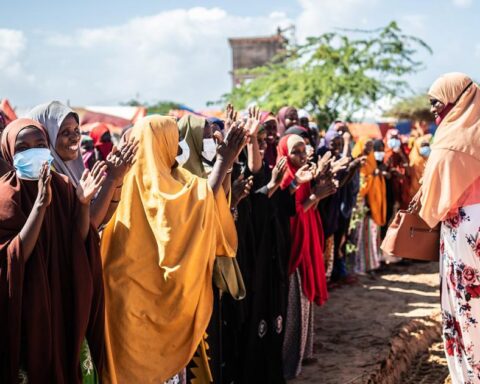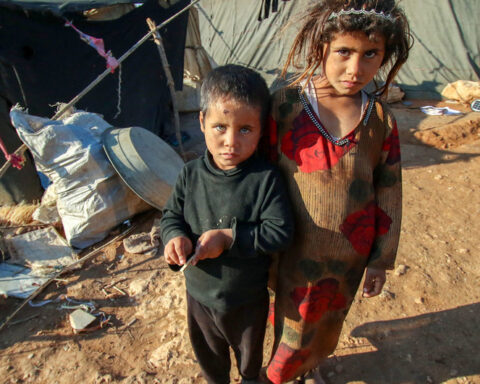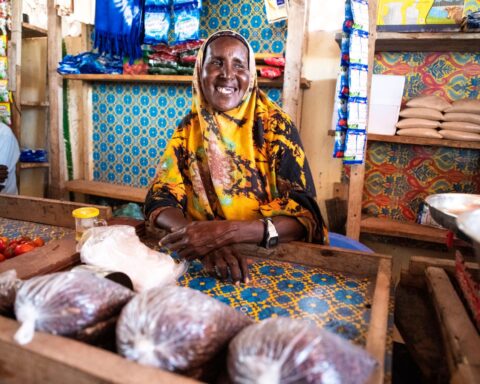Baidoa — In just the last decade, it is estimated that Baidoa’s population has doubled.
The increased influx of forcibly displaced people arriving to the urban area has made it challenging for humanitarian partners to reach all those who need support. Most displaced families continue to live in makeshift shelters (“buuls”) made from discarded clothes, cartons, and sticks, which offer little protection against heavy rainfall or sweltering heat.
In comparison to the rest of the country, humanitarian needs in Baidoa are overwhelmingly high. To meet the needs of some of the most vulnerable, IOM Somalia implemented a cash-based intervention (CBI) programme which benefited 2,500 families in Baidoa in December 2020.
CBI is the practice of giving vouchers to a given community that can be exchanged locally for the items or services of their choice. In Somalia, CBI is a preferred method for delivering aid as it empowers people to determine their own needs, and thus build resilience during difficult times.
But the impact of CBI extends much wider than community resilience. It also helps to strengthen local markets that have been disrupted due to climate disasters or conflict. When capital is injected, these markets are strengthened and links are fortified between the affected populations and the markets around them, representing one piece of the puzzle of post-disaster economic recovery.
In the case of Baidoa, more than USD 300,000 was spent by IDPs shopping for shelter or other essential items in local businesses.

Designing a CBI intervention
Careful planning is done prior to a CBI. A market assessment is conducted by IOM to ascertain that the market in question is able to sustain the increased demand which a CBI entails without driving up prices or creating a monopoly for any one vendor, in line with Principle 4 (Do No Harm) of the IOM Strategy for CBI.
Once this is established, vendors are chosen based on their size, the quality of their products and their proximity to the affected communities. Small-scale local vendors are specifically chosen to strengthen local markets procuring nationally, instead of those reliant upon imports. The beneficiaries of the intervention are then directed towards these registered vendors when buying their chosen commodities.
December 2020 was no exception. Once the market assessment and vendor registration concluded, selected eligible families in Baidoa received an e-voucher resembling a debit card to use to purchase timber, nails, and door locks to construct or repair homes as well as non-food-items such as cookers, jerry cans and fans.
A list of over 50 commodities were included on the e-vouchers to enhance the ability of IDPs to prioritise their own family needs. This list was compiled with the input from IDPs and host communities before the project began, ensuring their views were taken into account. For example, women in the local community emphasized the need for kitchen supplies, cooking equipment, and female hygiene products.
Of the individuals who went on to receive materials in the intervention, 80 per cent were women, contributing to gender empowerment by meeting female-specific needs and ensuring that women had purchasing power.
Where possible, locally produced items were chosen to strengthen the Somali supply chain. The large variety of items available on the e-vouchers also ensured that no single commodity would be subject to excessive demand, and therefore lead to market inflation.
When the shelter upgrade needs were verified, 1,500 families received an unconditional voucher of USD 20 to cover their basic needs, to spend on any domestic item. This supplemented family income, whilst increasing a sense of ownership over the project. Moreover, this also represented a small capital injection into the wider market in Baidoa outside of the vendors selected for the CBI.
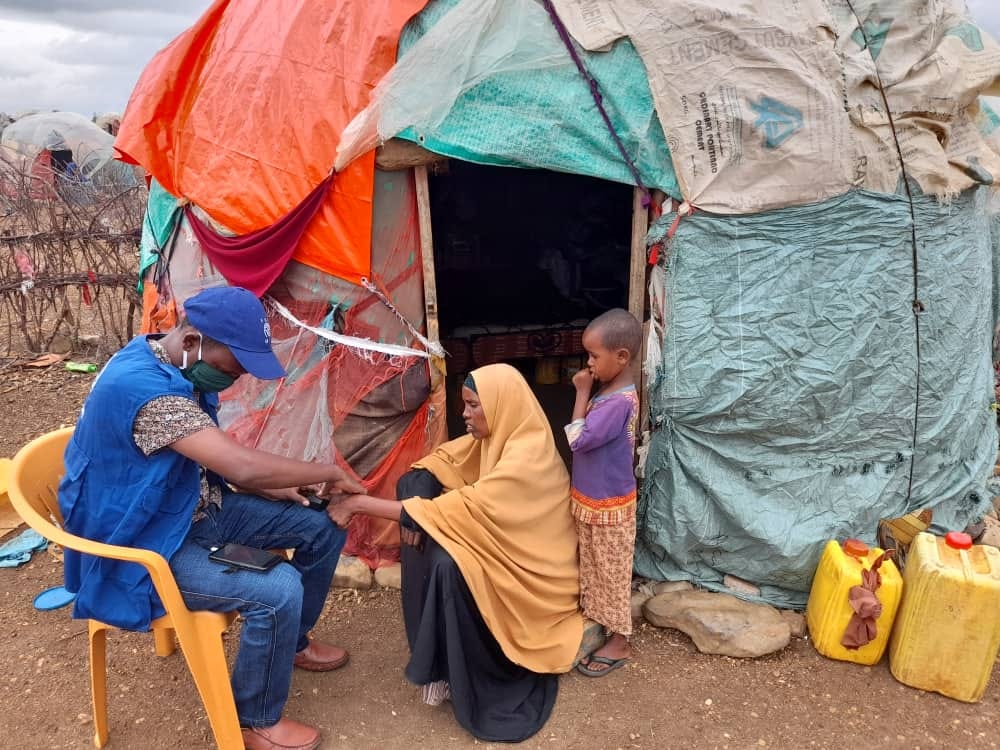
IOM’s Cash-Based Programmes in Somalia
IOM cash interventions are people-centered, gender-sensitive and give the people the dignity and choice to prioritize their individual needs and those of their families and community-specific needs, as well as providing immediate relief to improve their living situation.
In times of crisis and displacement, independence and self-sufficiency are disrupted, displaced people become disempowered, making them dependant on external assistance, and aggravating their vulnerabilities.
Strengthened local markets is a true success story for locals living in Baidoa that will surely have lasting positive effects.

